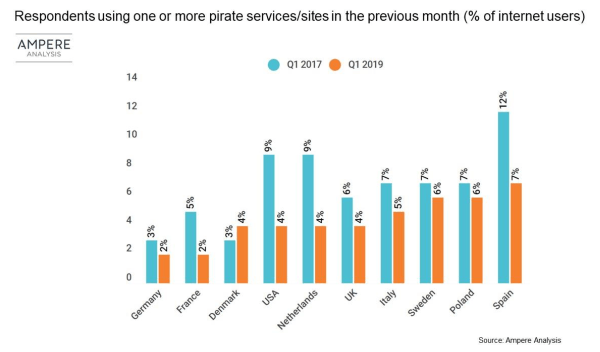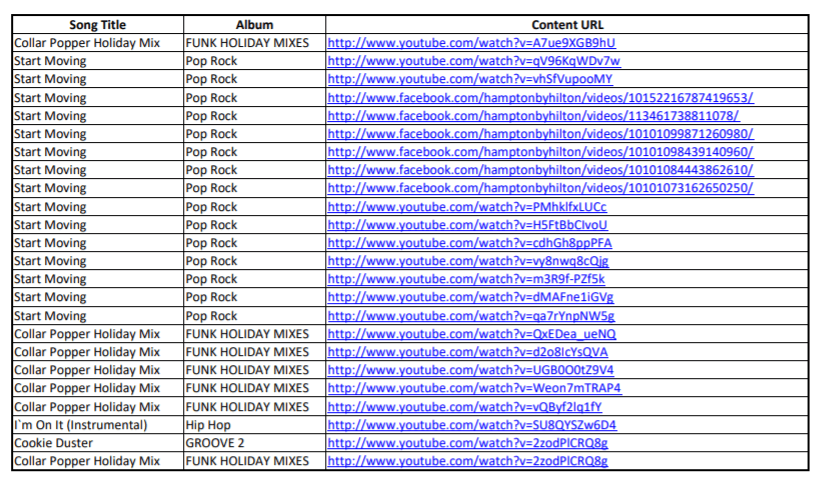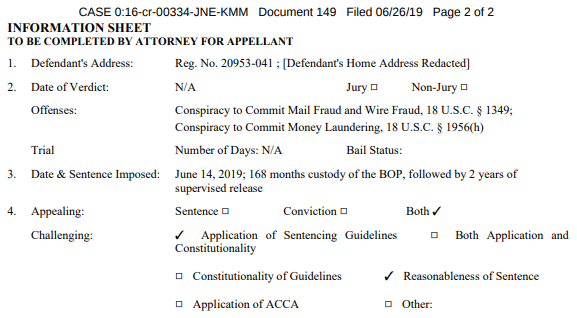‘Pirate’ IPTV Service Simply-TV Responds to DISH Lawsuit
vendredi 28 juin 2019 à 21:20
In 2018, DISH Network and encryption partner NagraStar sued several individuals, companies and trusts collectively doing business as SETTV.
As part of its $20 per month IPTV package, SETTV offered numerous TV channels that had been obtained from DISH’s satellite service. These were subsequently retransmitted without authorization on the SETTV streaming service.
Last November, DISH’s lawsuit came to an end, with SETTV’s operators ordered by a Florida court to pay a settlement of $90 million in statutory damages. However, the fight against similar – if not identical services – was not over.
In March 2019, DISH and NagraStar filed another lawsuit in Florida, this time targeting several individuals and companies collectively doing business as Simply-TV, a $20 per month service which several users have described as having many similarities to SETTV.
“Defendants created a pirate streaming television service they have branded ‘Simply-TV’. Defendants sell Device Codes and Android TV Boxes designed to enable access to the Simply-TV pirate streaming service, which includes numerous television channels that were received without authorization from DISH’s satellite service and were subsequently retransmitted without authorization on the Simply-TV pirate streaming service,” the complaint reads.
DISH goes on to suggest that the business model cascades down, with Simply-TV’s operators working together with people who receive the company’s channels without permission and Simply-TV re-selling service to others. A so-called “Master Reseller Program” allowed resellers to resell the service, complete with their own branding and pricing structure.
DISH’s claims against those allegedly behind Simply-TV are made under the Federal Communications Act, specifically 47 U.S.C. § 605(a) and 47 U.S.C. § 605(e)(4) which relate to illegal reception/retransmission and selling devices which facilitate access to DISH’s satellite programming.
While Simply-TV disappeared earlier this year, DISH requested a permanent injunction against the service and the supply of infringing devices. In addition to considerable damages, DISH also asked permission to take possession of and destroy all “devices, subscriptions, applications, and device codes, as well as all streaming devices, technologies, tools, software, products, components, or parts thereof” related to the service.
On March 20, 2019, the court issued a temporary restraining order but following a no-show by the defendants at an April 4, 2019 hearing, the court converted that order to a comprehensive preliminary injunction which not only covered Simply-TV, but all those in “active concert or participation with them” including affiliates and resellers.
At the end of May the alleged operators of Simply-TV, named as Peter Liberatore and Brandon Wells, filed a response to the DISH complaint. The pair, who are representing themselves, admitted that subscriptions to Simply-TV were sold through various websites.
They also admitted that some of the content provided by Simply-TV originated from DISH and acknowledged that the service had not obtained “explicit authorization” from the broadcast provider.
It was further admitted that Droid Technology LLC, a company allegedly founded by “some or all” of the defendants according to DISH, provided tools for consuming Simply-TV on various devices. It was also accepted that Droid used the previously-mentioned affiliate programs to attract business to Simply-TV.
How the case will progress from here is open to interpretation but if the SETTV judgment is any barometer, things could start to get pretty expensive.
The complaint can be viewed here, preliminary injunction here, response here (pdf)
Source: TF, for the latest info on copyright, file-sharing, torrent sites and more. We also have VPN reviews, discounts, offers and coupons.
 For many people, on-demand streaming services have become the standard for watching movies and TV-shows.
For many people, on-demand streaming services have become the standard for watching movies and TV-shows.


 Two weeks ago U.S. District Judge Joan N. Ericksen sentenced Paul Hansmeier to
Two weeks ago U.S. District Judge Joan N. Ericksen sentenced Paul Hansmeier to 
 Strike 3 Holdings, one of the most active copyright trolls in the United States, has filed cases against
Strike 3 Holdings, one of the most active copyright trolls in the United States, has filed cases against